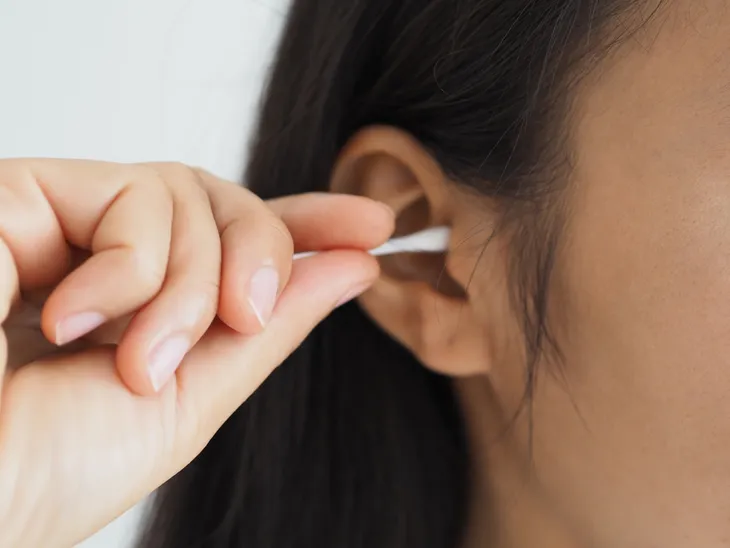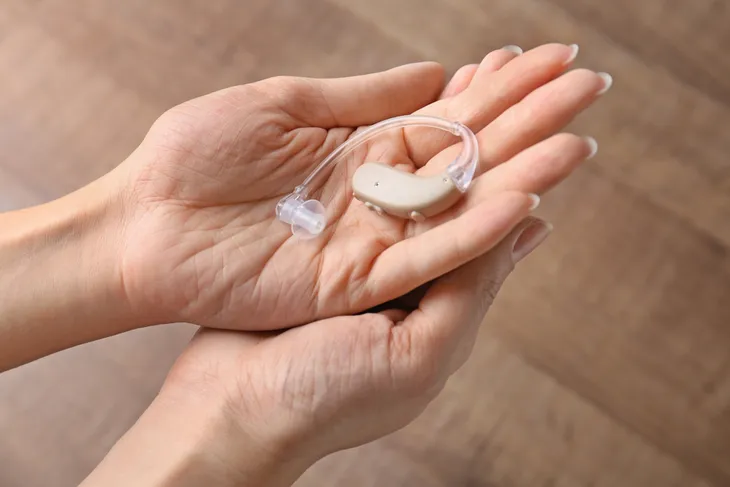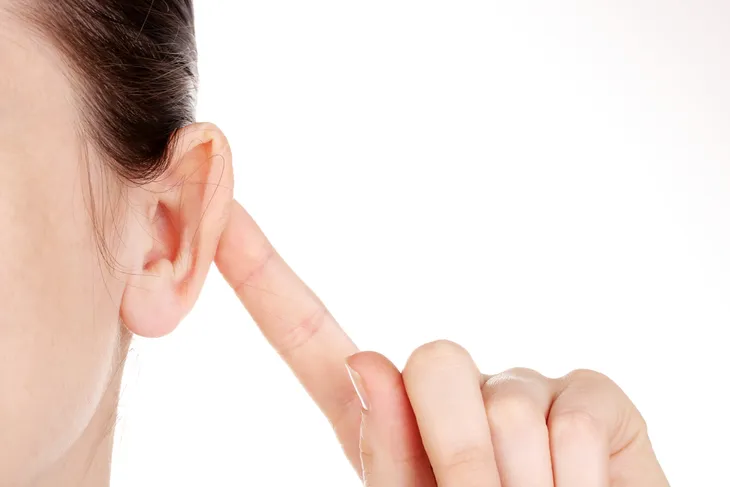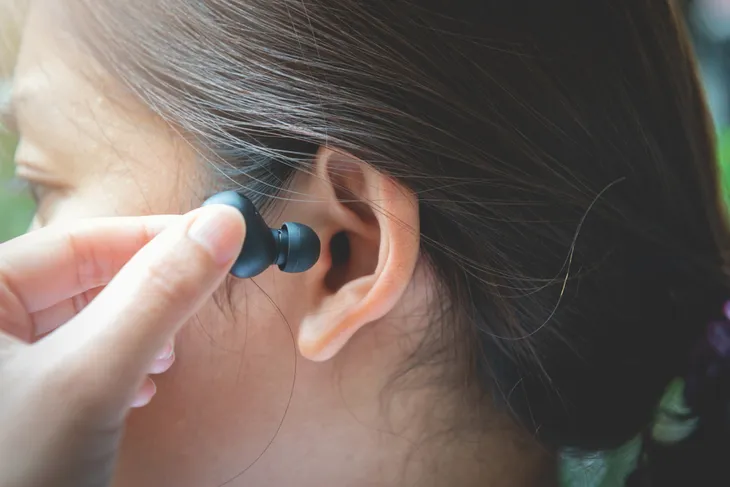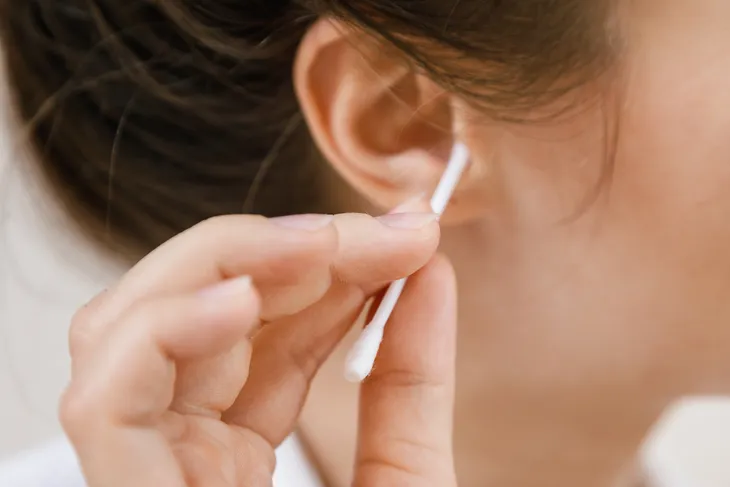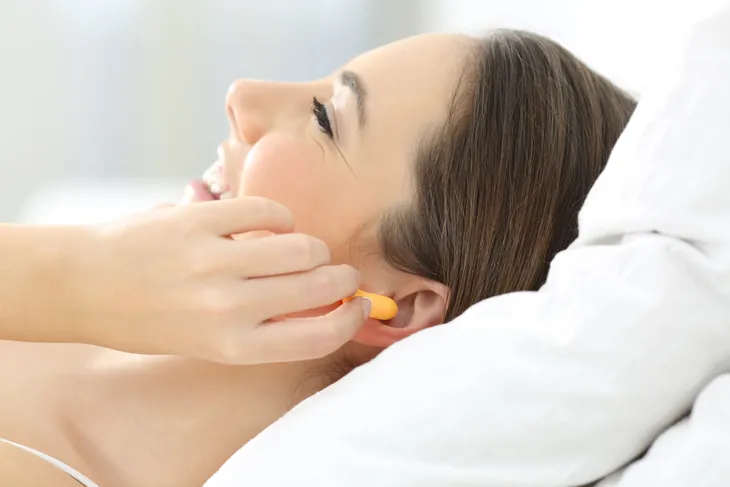Itchy ears: it’s a problem that affects most of us from time to time and rarely do we ever give the issue a lot of thought. Why? Because, in the vast majority of cases, it’s little more than a sign of skin irritation, and the problem typically solves itself after a few days, or maybe a week.
But having particularly itchy ears — whether that means the exterior part of the ear or the inner ear, which can be hard to reach — can sometimes be a sign of a more concerning issue. In fact, having a consistent problem with itchy ears could signify that there’s a much deeper problem that, left unexplored by your doctor or a specialist, could actually impact your day-to-day lifestyle, possibly through partial or even total hearing loss. To help you understand what those itchy ears could indicate, let’s take a look at some common issues associated with ear irritation.
Earwax Shortage
There’s a reason wax is used so frequently to protect objects like cutting boards and other items that frequently come into contact with foods: it can help provide protection by adding a layer of safe sealant. Without wax, a lot of physical objects would rapidly deteriorate and become pretty well useless in a short time.
Not having enough wax in your ears can also be a big problem. For one, it can make them feel plenty irritated, and for some people that could mean a sensation that’s very close to something resembling a nagging itch. In fact, just as some people struggle with eyes that don’t produce sufficient tears, some individuals struggle with ears that don’t create enough wax. If this is a consistent issue for you, speak with your doctor about possible solutions for this problem.
Dermatitis of the Ear Canal
You’ve probably heard of dermatitis — otherwise known as eczema — in a general sense, it simply means irritated (and usually inflamed) skin. A lot of people deal with this issue, which can be caused by seasonal allergies, a topical allergy to a foreign substance (such as a particular kind of laundry detergent), or an oil secretion from the skin containing yeast. Individuals with asthma and allergies, or those who work with hazardous substances, are at higher risk of experiencing dermatitis.
The ear is not off-limits to this kind of irritated and inflamed skin. Many individuals who experience dermatitis on their hands, feet, chest, or other body parts will experience itchy ears. It could also be related to any substances placed in or near the ears, from metal earrings to a shampoo or conditioner. Your family doctor or allergist should be able to help you determine the cause and find the right solution for you.
Ear Infection
Anyone who has experienced an infected ear knows it can be absolutely maddening — it can go from impacting the way things sound to causing swelling and pain to resulting in a sensation of intense itchiness. Often, the problem is caused by consistent exposure of the ear canal to external fluids, like water — which is why swimmers often experience ear infections — or because there’s a problem with the way the ear flushes out fluids (with infants whose ears are still developing often experiencing this issue).
Intense itchiness is often the result of an ear infection, particularly if the outer section of the ear canal is the most affected. If this is the case, you should be able to see clear signs of swelling and redness just by looking at your ear in the mirror. In most cases, an ear infection can be cured with antibiotics, but in more severe cases it could require a minor surgical procedure.
Hearing Aid Irritation
Hearing aids have come a long, long way since they were introduced a few decades ago. As computers have become progressively more powerful and, at the same time, much smaller, the technology behind hearing assistance has advanced in leaps and bounds. Today, they’re much harder to see on a person, while they feature far more enhanced performance compared to similar technology used in the 1980s and 1990s.
Unfortunately, there are some drawbacks to using a hearing aid and one of those issues is itchy skin and irritation. In some cases, individuals may discover that they have an allergy to the materials used in the hearing aid, while others may find that a hearing aid that doesn’t fit properly causes skin irritation. Anyone who has recently started using a new hearing aid and who is experiencing itchy skin in the ears should talk to their family doctor or hearing specialist about the matter.
Psoriasis
If you’ve ever had patches of red, irritated skin emerge on your body, then you’re probably familiar with psoriasis, a skin rash that affects many, many people. There are actually many different types of psoriasis, with some affecting children and young people, others more likely to impact older adults. Additionally, some types of psoriasis affect only one part of the body, like the nails, while others can be found just about anywhere.
Psoriasis is often found around the ear — such as behind it, where sweat and dirt can form and irritate the skin — or within it. As with psoriasis affecting other parts of the body, the red, itchy rash can make it difficult to focus or perform the most routine of tasks. In the ear area, it can result from a wide range of causes, from bacterial infection to viruses. If the area in or around your ear appears red and feels very irritated, talk to your family doctor about psoriasis.
Seasonal or Persistent Allergies
Individuals who regularly suffer from seasonal or persistent allergies — such as issues with pollen, grass, animal dander, etc. — or asthma are considerably more likely to experience itchy ears than people who don’t have these health concerns.
This is not to say that the itchy ear problem has anything to do with an individual’s other allergies, only that they are more likely to experience irritated and inflamed skin in and around the ears. Often, the problem is associated with the introduction of a problematic foreign agent, such as a hearing aid, earplug, earbud, headphone, shampoo, or medication that results in irritation. That said, the buildup of sweat or dirt may also be sufficient to cause inflamed skin in the ear area. Talk to your doctor about the issue and seek help in finding what’s causing the problem.
Sweat Build-Up
We all sweat — it’s totally natural, especially when we work in hot, humid places or perform particularly physically demanding tasks, from mowing lawns to jogging or cycling. But, let’s face it, some of us sweat a lot more than others — partly because of the individual’s level of physical activity, partly for other reasons, including fitness level and genetics.
Individuals who sweat more than the average person may find that this causes them to have skin irritation issues, perhaps in a few different places on the body. Although it’s not often associated with excessive sweating, the head and neck are no exception, with itchy ears often being the result. Talk to your family doctor about ways to help prevent or limit the build-up of sweat in and around the ears.
Medication
No two people will have the exact same reaction to any medication, no matter how many tests have been conducted to ensure it’s safe for widespread use. Even the most trusted medications, including those that regularly appear on the shelves of your local pharmacy or grocery store, can cause unexpected reactions in some people and not others.
One common side effect of just about any type of medication: skin irritation and inflammation. This can arise on just about any part of the body, including the neck and head; in fact, it can often impact the area around and inside the ears. If you notice you’re experiencing itchy ears after starting a new medication, then talk to your doctor about possible side effects and solutions for the issue.
Headphones or Earbuds
We often hear that using headphones or earbuds to listen to music on a regular basis can represent a considerable threat to our hearing and may, over time, significantly contribute to hearing loss. And there’s much research to support this finding and the overall concern surrounding hearing loss, particularly as technology makes it easier and more convenient to travel while using headphones or earbuds (the headphones that fit directly into the outer ear canal).
But we don’t always hear about some of the other dangers of wearing headphones or earbuds on a regular basis. While not nearly as threatening as hearing loss, these devices can also result in skin irritation and sweating in and around the ears. Over time, this may lead to the development of itchy ears that are red, swollen, and possibly painful. The best advice is to take regular, long breaks from using headphones and earbuds and to clean them thoroughly when you do.
Trapped Water
If you regularly find yourself immersed in water — perhaps because you enjoy swimming, scuba diving, or just lounging in a hot tub — you may find that this leads to irritation of the skin impacting a few different areas of the body. It’s usually most prevalent in places where the water can become trapped, resulting in the build-up of the dirt or chemicals contained within. One area where water can very easily become trapped: the inner ear.
To help prevent this issue, consider wearing earplugs when going in the water, particularly when it means going under the waves for any length of time. You could also talk to your doctor about medications that can help prevent or treat itchy ears in and around the skin as a result of trapped water.
Earwax Build-Up
We’ve identified a lack of earwax as a frequent cause of skin irritation and itchy ears elsewhere on this list, but having too much earwax can also be a problem. In fact, it often leads to the inflammation of skin deeper in the ear canal, where it can be very difficult to remove earwax without doing temporary or even permanent damage.
It’s worth noting that these earwax blockages tend to become more frequent as we age, largely because of the way glands are responsible for producing earwax, which becomes less effective over time. To help prevent this, consider talking to your doctor about solutions for regularly and safely removing excessive earwax. Hint: it won’t involve using cotton swabs, which can push earwax deeper into the ear canal and cause more harm than good.
Earplugs
There are, rather surprisingly, many different reasons to regularly use earplugs. If you’re a big fan of attending loud music concerts and festivals, it’s always a good idea to pack them, particularly if you’re going to be close to the artist and the speaker system. Of course, earplugs are also helpful if you’re a swimmer or just enjoy lounging in the water, as trapped water can often lead to ear infections or skin irritation in and around the ears.
But sometimes the solution to one problem, like really loud music or trapped water, can introduce its own problems. While many earplugs are made with safe materials, some aren’t, and the chemicals used to produce them can lead to itchy ears and skin irritation. If you’re finding your ears feel particularly uncomfortable after starting to use a new set of earplugs, consider discontinuing their use and trying something else instead.

